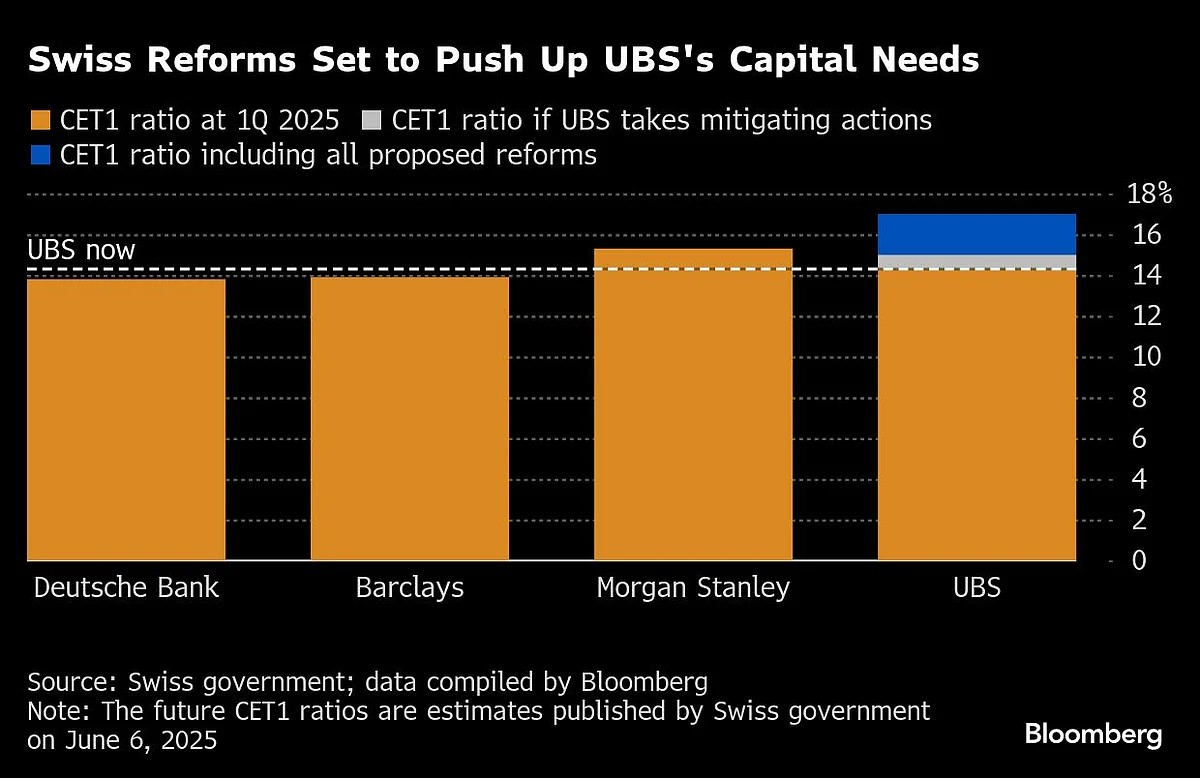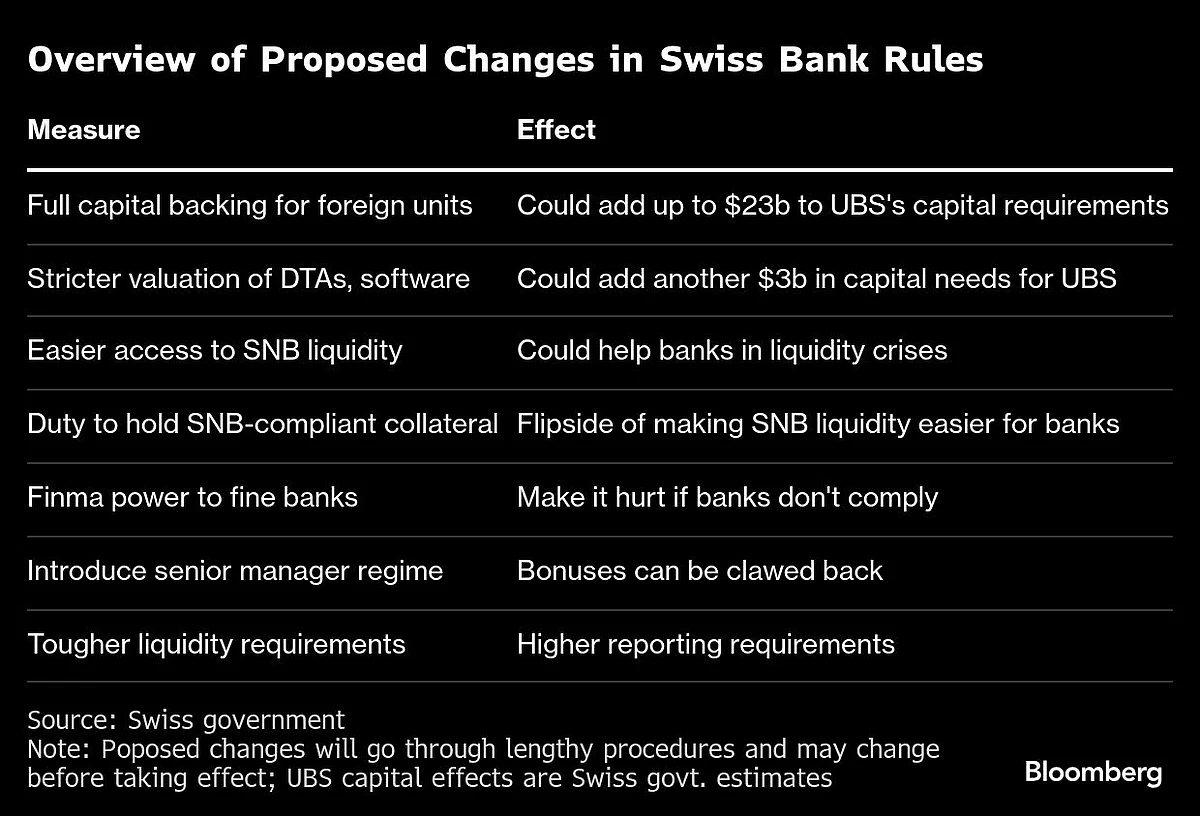UBS Faces $26 Billion Capital Demand From Swiss Bank Reforms
The government estimates that this will force UBS to add as much as $23 billion in capital to its Swiss-based main unit.

UBS Group AG is facing as much as $26 billion in fresh capital requirements to be phased in over the next decade under banking reform proposals from the Swiss government, following an announcement that provides clarity for investors after months of uncertainty.
The biggest hit is set to come from a proposal that would require UBS to increase the capital held at home against its stakes in foreign units to 100% from 60% at present, according to a long-awaited outline for legislation released Friday. The government estimates that this will force UBS to add as much as $23 billion in capital to its Swiss-based main unit.
UBS shares extended gains on Friday, up 5% as of 3:30 p.m. in Zurich.
The proposals are nevertheless a defeat for UBS Chairman Colm Kelleher and Chief Executive Officer Sergio Ermotti who lobbied for more than a year to stave off some of the reforms mooted in the wake of the collapse of Credit Suisse in 2023. They’ve railed against the capital plan as an “extreme overreaction” which puts them at a disadvantage to global peers and warned it could hurt their plans for investor payouts.
“The shares have massively underperformed its peers and it seems that today’s proposals were priced in,” said Andreas Venditti, an analyst at Bank Vontobel AG in Zurich.
The government justified its stance on the basis that UBS would be more resilient in a crisis, and in any case the bank has many ways to mitigate the impact of the changes. The figure of $26 billion, in common equity tier 1 capital, represents the impact of all new measures together based on today’s balance sheet.
At the same time, the government said that the measures could also entail a reduction of about $8 billion in the use of convertible debt, or AT1s, as capital. That would leave a need for an extra $18 billion in so-called “going concern” capital, it said.
“How high the additional capital requirement is in the end depends on many factors and to a large extent also on how UBS reacts to these measures,” Swiss Finance Minister Karin Keller-Sutter said at a press conference in Bern.

The proposal on foreign units means that in an emergency, UBS “should be able to dispose of foreign subsidiaries either in part or in their entirety, without this negatively impacting the capitalization of the parent bank,” the government said in a statement. “The required build-up of capital can ideally be achieved without raising capital, without excessively restricting organic growth and without excessive reduction in distributions.”
Bloomberg reported the decision on foreign units in May.
The government also unveiled a list of other measures to be drafted into ordinances and legislation, including substantial new powers for the financial regulator Finma.

Friday’s announcement caps months of uncertainty for UBS after officials first touted the plans in April last year, a factor that has weighed on the share price. The stock has been essentially unchanged since then, while the Stoxx Europe 600 Banks index — which tracks the biggest banks in the euro area — has climbed about by more than 40%.
Switzerland’s leadership also presented new rules for capital quality. These will update how banks have to quantify intangible items such as deferred tax assets, in-house software and other hard-to-value items they have on their books, adding up to a potential increase of $3 billion.
These changes are planned to be implemented via an ordinance which doesn’t require lawmakers’ sign-off. Therefore they may enter force as early as the middle of next year.
The government will now finalize the draft and propose the changes to parliament, which is expected to debate them in 2027. The new law likely won’t take effect before 2029. As UBS can lobby lawmakers, there’s a chance that the draft will be watered down. In any case, the government has proposed a phase-in period of between 6 and 8 years once the changes are agreed, meaning the bank could have until 2035 or later to fully comply.
“The phase in period is even longer than what the market expected and the AT1 offset softens the blow somewhat,” said Johann Scholtz, an analyst at Morningstar. “This is as bad as it will get for UBS from a capital perspective. From here they can lobby for concessions and look to take mitigating actions themselves, for instance upstreaming capital from overcapitalised subsidiaries.”

